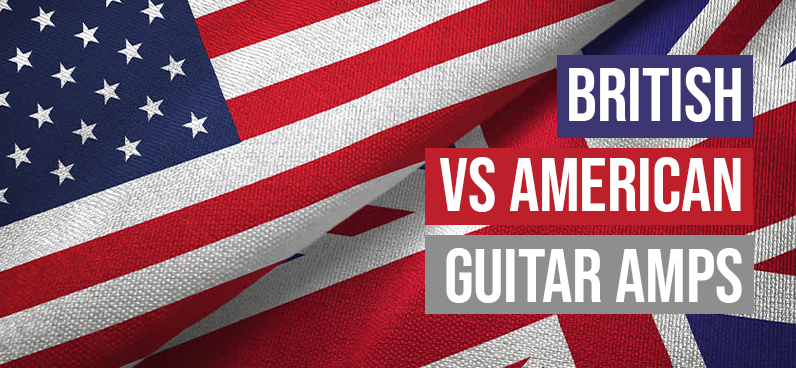
By Will Soprano from the MojoTone Amp Shop
Typically, guitarists start by playing a sound -- whether they are trying to sound like a specific artist, maybe Jimi Hendrix or Brad Paisley -- or they’re trying to replicate a sound, like a genre of music they grew up with like Post-Punk or Hardcore.
Many of these sounds can be found in playing style, pickups, and guitar choice. But the gear that pushes and amplifies the guitarist has just as much influence as their fingers and strings. We’re going to dive into one of these gear choices by showing the difference between American and British guitar amps.
When it comes to guitar amplifiers, there are two major players in the market: British and American amps. Both types have their unique features and sound characteristics that are favored by different musicians. In this article, we will discuss the differences between British and American guitar amps and their sonic characteristics.
British Guitar Amps
British guitar amps are renowned for their warm, creamy sound and have been the go-to choice for rock guitarists for decades. The most popular British amp brands are Marshall, Vox, and Orange, among others. These amps are characterized by their mid-range frequency response, which gives them a distinct, "throaty" sound. This mid-range emphasis also helps cut through the mix in a live setting, making them a favorite of guitarists who need to be heard above the rest of the band.
British amps also tend to have a more "compressed" sound, which means the dynamic range is limited, resulting in a more consistent level of distortion. This sound is favored by guitarists who prefer a smoother, more compressed tone for playing leads and solos.
Finally, British amps tend to have a more “rock-n-roll” sound, with many models dating back to the 1960s and 1970s. The classic sound of bands like Led Zeppelin and The Who was largely due to the use of British amps.
American Guitar Amps
Classic American guitar amps, on the other hand, are known for their bright, crisp sound, with a more emphasis on the high and low frequencies. The most popular American amp brands include Fender, Mesa/Boogie, Gibson, and Peavey, among others. These amps are characterized by their clean sound, which allows the natural tone of the guitar to shine through.
Most Classic American amps also tend to have a wider dynamic range, meaning there is more contrast between the clean and distorted sounds. This makes them a favorite of guitarists who want a more dynamic and responsive tone, particularly for rhythm playing.
Finally, Modern American amplifiers tend to come with more bells and whistles, with many models featuring cutting-edge technology such as digital modeling and solid-state components. The sound of American amps can be heard in a variety of genres, including country, blues, rock and metal.
Which Amp Should You Play?
While both British and American guitar amps have their unique characteristics, the choice of which one to use ultimately comes down to personal preference and the type of music being played.
British amps are favored by rock guitarists for their warm, vintage sound and mid-range emphasis, while American amps are favored by a wider range of musicians for their clean, bright sound and wider dynamic range. Whatever your preference, there is sure to be a guitar amp out there that will help you achieve the sound you're looking for.